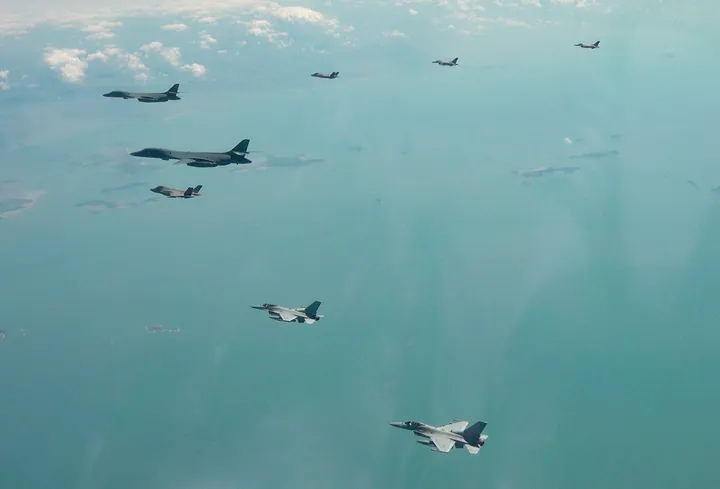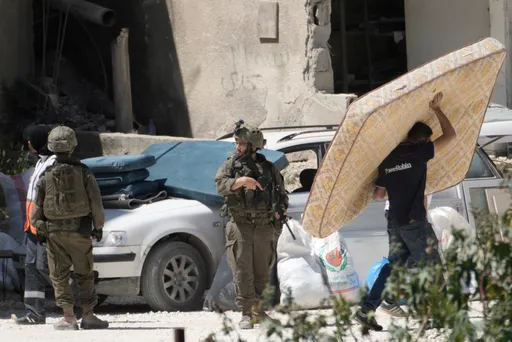Israel is quite literally playing with fire.
It launched a botched operation 3km into the Gaza strip, whose objectives are still unclear, but which seems to have been an attempted abduction or assassination of a senior member of the Ezzedine Al Qassam Brigades, the military wing of Hamas. The special forces unit used a civilian vehicle, and its members were reportedly disguised in women’s clothes. The alleged target, Nour Baraka was killed, as were six other resistance fighters.
Israeli forces lost one of their commandos, and another was reported injured. Things could have been much worse for Israel if it had not been for the overwhelming firepower it used to rescue its forces out of Gaza.
Hamas and Israel have since exchanged attacks, with Palestinian resistance groups firing tens of projectiles into Israel with reports of tens of injuries, while in return Israel launched rounds of airstrikes, which targeted among others, the homes of Hamas leaders, including Gaza’s speaker of the Palestinian Legislative Council, Ahmad Bahar.
Israel also bombed and destroyed the building that houses the Al Aqsa television station in Gaza City. A 19-year-old Israeli soldier was severely wounded after "an anti-tank missile" hit a bus in southern Israel's Shaar HaNegev regional council area, Haaretz reported.
Israeli representatives have been laying blame at Hamas’s door for the escalation. However, Israel triggered it, and on this occasion, it is firmly to blame for the death on both sides.
The incident is in keeping with Israel’s reputation for negotiating with one hand and murdering with another. It just cannot be trusted.
It is not clear why Israel chose this moment to escalate matters. It decided to do this while a truce with Hamas was being negotiated through Egypt, which would have brought some relief to the besieged strip.
There was the talk of a sea route from Cyprus to Gaza to be installed to allow relatively free movement of cargo and presumably people in and out of Gaza that the Qataris had been negotiating. The two million besieged Palestinians were enjoying nearly 16 hours of electricity per day for the first time in years.
The Qatari Ambassador Mohammed al Emadi brought suitcases full of cash totalling around $15 million to pay for the salaries of Hamas workers, who had not been paid in six months. In return, he could be heard asking a senior Hamas representative to “ensure calm.”
This was an explicit reference to scaling back the Great Return March to the Gaza fence, which has continued unabated since March.
Palestinians suffer as the world cosies up to Netanyahu
Further afield, Israel was enjoying quite sensational normalisation with Gulf states, with whom it has no official diplomatic ties.
Relations between Israel and Saudi Arabia have warmed, even leading Netanyahu to stress the importance of Saudi Arabia’s stability, in what analysts saw as clear reference to protecting the Saudi Crown Prince from any accountability for the Jamal Khashoggi urder in the Kingdom’s Istanbul Embassy.
Benjamin Netanyahu was on the front row for the commemoration of centenary of Armistices day in France. US President Trump’s special Adviser, Jason Greenblatt has been briefing pro-Israel supporters about the long rumored ‘ultimate deal’ which he told supporters of Israel in London would be made public as soon as the beginning of December.
Having handed Israeli recognition of Jerusalem as its capital and worked overtime to close UNRWA—both long desired by Netanyahu—it is almost certain the ‘deal’ would provide Israel with more gifts and be impossible for the Palestinians to accept.
Israel was winning the diplomatic and PR war, while the Palestinians were increasingly isolated. This makes it even more bizarre that it would seek to ignite a war on Gaza just as it was making such wins.
The botched attack forced Netanyahu to scupper home from France to decide on the next steps to yet again punish Gaza for the Israelis breaching a ceasefire or understanding of a ceasefire. As he was on his way, it was reported the Israeli military was requiring Tel Aviv airport to change flight routings in fear of rockets from Gaza reaching its main airport.
It seems Israeli leaders are now so certain of complete impunity—not only provided by the West but a normalising Arab world—that it can diplomatically win without any costs while exercising state terror on the Palestinians to perhaps finally beat them into submission.
Israel perhaps hopes this will send them scuttling to Trump to accept any deal both in Ramallah and Gaza.
Having failed to quell the peaceful Great Return March, Israel is back to her old tricks of crying wolf and painting Palestinians as terrorists to justify its violence. The normalising Arab states should take note. Israel cannot be trusted, especially under the current Netanyahu regime.
Whatever calculations Netanyahu and his extremist government made when they sanctioned the attack in Khan Younis, they once again failed to factor in the bravery and resilience of the Palestinian people.
As Israeli tanks amass at the Gaza fence, Israel can be sure that yes it can kill tens, hundreds or thousands with its American supplied weapons, but it will not break the Palestinians.























